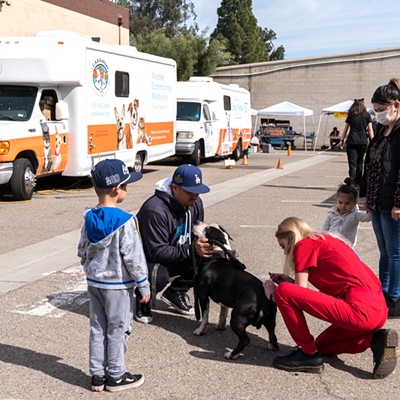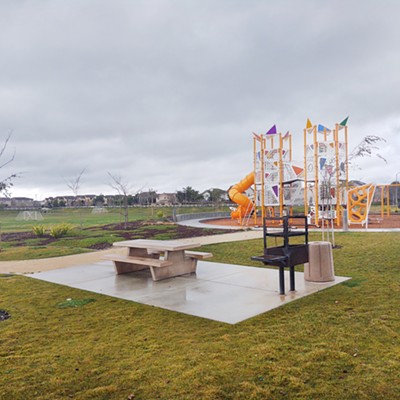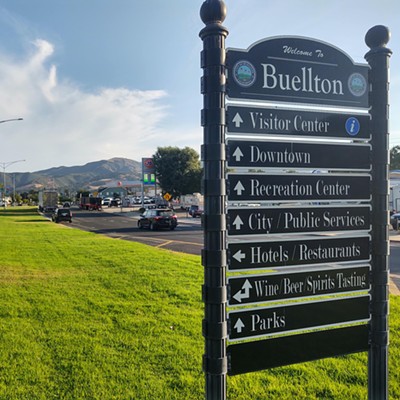Dumpster diving. Theft. Vagrancy. Violent or tense interactions.
Lompoc hotelier Atul Patel said these incidents were few and far between up until three or four years ago. But now, he said, the employees who work at his hotels—the Hilton Garden Inn and Holiday Inn Express—have to deal with situations like this on a regular basis, especially at night.
“We never used to lock our [lobby] doors,” Patel said. “But we do now, just for the safety of our in-house guests and employees.”
After 10 or 11 p.m., Patel said, guests now need to use their hotel key to get into the buildings. He added that these sorts of issues are impacting all of the hotels in the city, and they aren’t only a problem in Lompoc—“It’s every city in the USA,” he said.
About a year ago, Patel approached Lompoc Mayor Jenelle Osborne with an idea that he and other hoteliers believe could help put a dent in some of the issues: a 1 percent increase in the city’s transient occupancy tax that would be allocated specifically to public safety.
“We felt that definitely the fire department, the police department, needed some assistance,” Patel said. “With all the people walking our streets, we just felt that we needed an additional safety measure in place.”
Patel and a handful of other hoteliers spoke in support of the increase at the Lompoc City Council’s May 3 meeting, with the caveat that they would only be in favor of the increased bed tax if it was a special assessment tax—something that’s earmarked for a specific use and requires two-thirds of voters to approve it. Hoteliers asked that 65 percent of the increase be added to the police department’s budget and 35 percent to the fire department’s.
Hilton Garden Inn General Manager Sylvia Lizarde told the council that the police chief and his staff probably know her by name because she calls them at all hours.
“Anybody who does not feel it is needed for fire and police, I welcome you to come out in the nighttime and see what Lompoc is. It’s a whole different place than it is during the daytime,” Lizarde said. “My staff is constantly on edge because we don’t know what the day’s going to bring.”
Lompoc Police Capt. Kevin Martin said that police have responded to at least 130 calls for service at the Hilton Garden Inn since 2019. Martin added that police have also responded to a similar uptick in calls from other area hotels as well, he just didn’t have the numbers compiled yet.
“A lot of it’s suspicious activity or somebody’s car was broken into or something like that. ... It’s up, it’s definitely up,” Martin said. “I think society as a whole is in a place that it hasn’t been in a long time. There are people struggling out there.”
Sylvia King, who was a hotelier in Lompoc for more than 30 years, said that while past TOT tax increases were touted as funding for public safety, the revenue always ended up in the city’s general fund.
“We have been asking for the last 30 years for the TOT to be earmarked for police and fire, and it kept going into the general fund,” King said at the May meeting. “And we kept scrounging for money to pay for additional police.”
City staff said that approximately 70 percent of the city’s general fund revenue gets allocated to public safety.
Although Lompoc’s police department has been underfunded in recent years, City Manager Dean Albro told the Sun that the city was able to fund all of its police officer positions for the 2021-23 budget cycle and expand its police force by one position. The 1 percent sales tax increase Lompoc voters passed in 2019 helped, he said, adding that the city was in real financial trouble at the time due to its pension obligations.
Capt. Martin said the police department is almost through the process of hiring to fill all 48 of its positions, but it will likely still be short a couple of officers for another six months to a year.
Lompoc first passed its TOT or bed tax ordinance in 1964, according to city documents. Fred Slate spoke on behalf of city hotel owners at the time. According to Lompoc City Council meeting minutes from July 21, 1964, he told the council that the ordinance would only be fair if the tax were countywide. By September of that year, Lompoc’s TOT was 4 percent.
Santa Barbara County’s TOT is now 12 percent. Lompoc’s rate has risen to 10 percent, which is similar to that of Santa Maria, Paso Robles, Arroyo Grande, and San Luis Obispo, according to a city staff report. In 2021-22, Lompoc anticipates bringing in $2.3 million from TOT, and city staff expect an extra 1 percent to generate about $230,000 annually.
That extra revenue won’t go as far as people think it might, City Councilmember Jeremy Ball said at the May 3 meeting. In addition to the special tax assessment, hoteliers asked the city for a credit that would cover some of the cost of what credit card companies charged them to collect the tax. Ball wondered whether the money left after hoteliers received that credit would fund a full-time police officer. City staff told him it wouldn’t.
“We have all of these horrible things happening, and I’m barely going to get three-quarters of a police officer and I’m going to get a part-time firefighter,” Ball said, adding that 1 percent might not be a large enough increase. “We’re not going to turn a big corner and fix all of the crime issues and the nighttime issues that were talked about. … But the 1 percent, that’s better than nothing.”
Patel told the Sun that he understands the 1 percent TOT increase won’t be a cure-all but it will at least be something.
“This is to be used for whatever their specific needs are,” Patel said. “It’s about our guests’ safety, our employees’ safety, and the safety of the public.”
The council voted 4-0 (Councilmember Gilda Cordova recused herself due to ties with the city’s hotel industry) to ask staff to come back with a TOT ballot measure—including a 1 percent increase to be split 65/35 between the police and fire departments and a 2 percent credit for hoteliers.
City Manager Albro said the county needs the measure’s language by the end of June in order to include it on the November general election ballot. He expects the council to discuss the issue again at one of its June meetings.
Reach Editor Camillia Lanham at [email protected].














